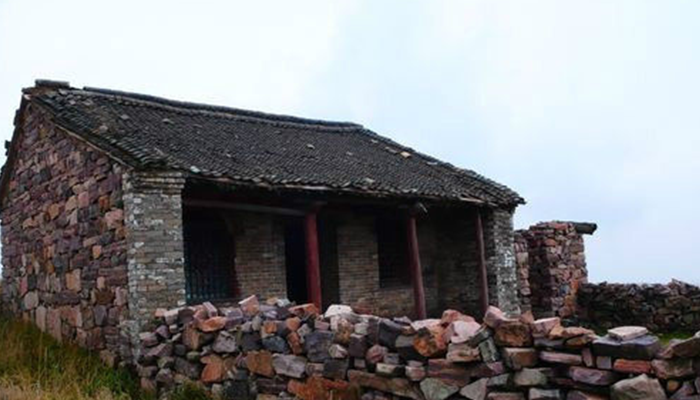The Legend of Shun
The Legend of Shun
Shun's legend is a folk tale of Yuncheng in Shanxi Province.
On May 23, 2011, Shun's legend was approved by the State Council to be included in the third batch of national intangible cultural heritage list.
Historical Origin
Shun was born in Zhufeng Village, Yongji County. His surname is Yao and his name is Chonghua because of his double pupils. Soon after his mother gave birth, he died. His father married a stepmother and gave birth to a man and a woman. The man's name was elephant, and the woman's name was broad head. She was Shun's half-brother and sister.
It is said that when Shun was 20 years old, he became famous for his filial piety. Because he can persevere in filial piety to his parents who abuse and persecute him, he was praised in his youth. Ten years later, Yao chose Shun as his successor, and married his two daughters to Shun to examine his character and ability. Shun not only made the two women live in harmony with the whole family, but also showed outstanding talent and noble personality strength in all aspects. Yao was very happy to learn about this. He gave Shun Haoyi (Xige cloth) and Qin, cattle and sheep, and built warehouses for him. Shun was rewarded with these rewards. The old man and the elephant were very hot-eyed. They wanted to kill Shun and seize the property. He asked Shun to repair the roof of the warehouse, but set it on fire below. Shun relied on two hats as wings and jumped from the house, surviving. Later, he asked Shun to dig a well. The well was very deep. However, he and the elephant filled it with earth. They wanted to plug the well and bury Shun alive in it. Fortunately, Shun was alert in advance and dug a passage beside the wellbore. He went through the passage and hid for some time. The old man and the elephant thought the conspiracy had succeeded. He thought that this idea was his idea. He wanted to play the piano when he shared the things. He also wanted Yao's two daughters to be his wives and to share the cattle, sheep and barn with his parents. The elephant lived in Shun's house and played Shun's piano. Shun went to see him. The elephant was shocked and the elder was unhappy, but he said in his mouth, "I think Shun is just Yu Tao!" Shun also did not take it seriously. As always, he was filial to his parents and friendly to his brothers. He was more sincere and cautious than ever.
Shun left home to cultivate in Lishan because his parents abused him. Nevertheless, he never forgot the kindness of his parents'upbringing, regardless of past suspicions. One day, he saw a female turtle dove flying with a small turtle dove. The female turtle dove caught flying insects from time to time to feed the little turtle. She was very honored. Shun was moved. He missed his parents who were nurturing him, so he could not help singing the song "Sighting for His Family" to say, "You Pi, Shun Shan, Cui Wei, there are birds flying high. Looking at Piquitoes hovering - --- No Zhang Rui thinks about my parents. Living on hard farming days and on moons is like a gallop, and my parents will return home safely. "It means:
Boarding the calendar of Cuiwei,
See two turtledoves flying in the air.
The sun and the moon shuttle like arrows.
I miss my parents, but it's hard to return home!
Shun is indeed a great filial son. He was known for filial piety at the age of 20.
Thirty miles from the north gate of the transportation city, there is Mingtaogang, on which there is a Shun Emperor's Mausoleum Temple. The people of Hedong call it the Shun Emperor Temple. According to the records of Puzhou Prefecture and Jiezhou prefecture, the temple was built in the 26th year of Kaiyuan in Tang Dynasty (738 AD). It was destroyed by earthquake in Ming and Jiajing years, and was rebuilt on a large scale during Wanli years. It has been repaired many times in Qing Dynasty and is still well preserved. The Temple of Emperor Shun is divided into three parts: the outer city, the mausoleum and the imperial city.
Inheritance Significance
Through the cultural bond of Yao and Shun legends and the custom of visiting relatives, the people of the two places have established a close blood relationship. This kinship is a derivative of local beliefs. This faith-based blood relationship is super-historical. There is a local saying that there is no intermarriage between Otter and Lishan because they are already relatives. In fact, even if this blood relationship is true, according to Chinese tradition, "five clothes" are regarded as blood interruption, can be intermarried with each other. This view of non-intermarriage seems to span a long history, directly linking real life with the ancient Yao and Shun times.
This kind of consanguineous geographic relationship, with the help of the media of belief, shows a strong cultural radiation. Family visits are not only related to orangutans and Lishan, but also to all villages along the route of family visits.


-
1.Zhouzhuang Town
Zhouzhuang Ancient Town is a preferred site for world cultural heritage and the first batch of national 5A tourist attractions. It is located in the southeast of Suzhou City and at the junction of Kun
Time 2018-12-06 -
2.88 Floor Sightseeing Hall of Jinmao Building
Jinmao Tower's 88th floor sightseeing hall, located in Shanghai, China, has a height of 340.1 meters and an area of 1520 square meters. It is the largest sightseeing hall in China at present. It is th
Time 2019-01-26 -
3.Kaiping Garden
Kaiping Liyuan is located in Bohua Village, Tangkou Town, Kaiping City, Guangdong Province. It is a private garden of Xie Weili, an overseas Chinese traveling to the United States in Tangkou Town
Time 2019-01-29 -
4.Flower Huaer
"Huaer" is a folk song created and shared by Han, Hui, Tibetan, Dongxiang, Baoan, Sarah, Tu, Yugu and Mongolian nationalities in Gansu, Qinghai and Ningxia provinces in Northwest China.
Time 2019-05-04 -
5.Hui Banquet Song
The Hui banquet song is one of the folk songs sung by the Hui people at weddings, festivals and Islamic festivals. Also known as "Family Music" and "Vegetable Music".
Time 2019-05-04 -
6.Jiashan Tian Ge
Jiashan Tiange is a local folk song in Zhejiang Province. It belongs to a variety of Wuge songs. It is a unique form of ballad in Zhejiang Province. It is a song that workers sought comfort and expres
Time 2019-05-05 -
7.Construction Techniques of Li Nationalitys Ship type House
The carrier of the excellent architectural skills of the Li nationality will inevitably fade out of sight in the fierce collision between traditional civilization and modern civilization. Today only a
Time 2019-05-12 -
8.Mianzhu Wood Engraving New Year Picture
Mianzhu New Year Picture, also known as Mianzhu Wood Printing New Year Picture, is one of the Chinese Folk Woodcut New Year Pictures. It is named for Mianzhu City, Sichuan Province
Time 2019-06-04 -
9.King Yalu
King Yalu is the first long Miao heroic epic in history. It is usually chanted at the Miao spiritual ceremony. It is only handed down orally and has no written record. The history of the Miao people's
Time 2019-07-10 -
10.The Yi Nationality Plays Songs
The dance of the Yi nationality is colorful and varied. It is typical of the simple collective dance "Da Song" (also known as "Ta Song") with the entertainment of the masses. In Mi
Time 2019-07-12 -
11.Plant resources in Guangan
The forest vegetation in Guang'an City belongs to the vegetation area of evergreen broad-leaved forest and coniferous broad-leaved mixed forest in the middle subtropics. Gymnosperms include Pinaceae, Cupressaceae, Ginkgo biloba and Metasequ
Time 2020-12-19 -
12.Population of Dazhou
By the end of 2019, the registered residence population of Dazhou was 6 million 589 thousand and 400, with a permanent population of 5 million 741 thousand, and the urbanization rate of permanent residents was 47.14%. The annual death rate was 46
Time 2020-12-20